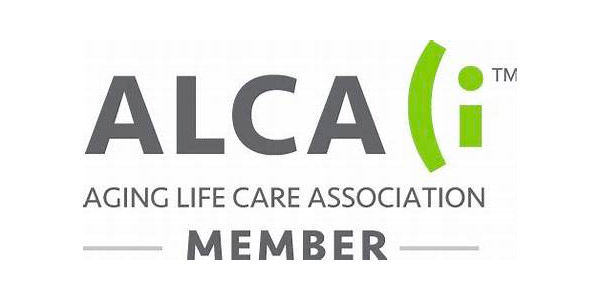Navigating Dementia Care with Compassion and Expertise
Case Spotlight: Jane and Her Daughter, Susan
By Julia Nickrosz and Joan Harris
 At Symphony Care Management (SCM), our mission transcends mere care coordination; we commit to a holistic continuum of support utilizing our expertise to tailor services and strategies to the evolving needs of our clients and their families. This Client scenario exemplifies our unwavering dedication to proactive and comprehensive Care Management at every stage of a client’s journey.
At Symphony Care Management (SCM), our mission transcends mere care coordination; we commit to a holistic continuum of support utilizing our expertise to tailor services and strategies to the evolving needs of our clients and their families. This Client scenario exemplifies our unwavering dedication to proactive and comprehensive Care Management at every stage of a client’s journey.
Our engagement with Jane began when Jane’s sister called Symphony Care Management, deeply concerned for Jane who at age 80 suffers from Alzheimer’s Disease. Jane’s sister and brother were extremely engaged in the support and care of their sister but spent the winter months away from Jane in a warm climate. Jane lives in her long-time suburban home with her daughter Susan as her primary caregiver and Health Care Proxy. Until this point in time, Susan was able to go to work and leave her mother alone safely. All that changed when Jane wandered from the home while her daughter was at work. SCM responded swiftly, evaluating the client and arranging for high-level well-trained companions who not only ensured Jane’s safety but also provided meaningful engagement, allowing her to reminisce and feel connected. Our Dementia Specialist coached the care team and family to integrate the companions into Jane’s daily life also recommending stimulating activities meeting Jane where she was in a moderate stage dementia. This intervention gave Susan peace of mind, enabling her to continue her professional life and personal pursuits, like swimming, without undue stress knowing her mom was in good hands.
Over the following seven months, as the client’s memory impairment advanced along with other medical disease states, Jane’s anxiety increased and her behavioral expressions became challenging. Despite the complexity of her symptoms, which eventually resisted therapeutic interventions, SCM’s Dementia Specialist tailored the approach that included coaching her daughter and companion team with specific words, strategies, and activities to redirect Jane and help her feel calm. Using the framework of Habilitation Therapy in dementia care (1), many environmental solutions were implemented to respect Jane’s dignity and promote her independence, meeting the goal of reducing her anxiety and distress level. In addition, we recommended a geriatric psychiatrist be added to the team to refine her treatment strategy. As the client’s needs escalated to 24/7 supervision, we had already prepared the groundwork for a transition to a memory care assisted living community having educated the family about what to expect and assisting them in selecting a community that offered robust programming, 24-hour nursing, and proximity to her daughter’s home. Having a well thought out back up plan in place is a critical part of our care plan early on in our work with clients and families.
After we supported the strategies for a smooth transition from home to the memory support assisted living community, new challenges emerged. The client was unable to hold her head up prompting us to advocate strongly with Jane’s medical providers to thoroughly investigate causes and to rule out medical causes. Often, when individuals have a progressive dementia diagnosis, assumptions are made that new symptoms are just part of the dementia. We know that reversible medical causes can be overlooked. We also know that individuals with Alzheimer’s Disease cannot always express their pain. This was the case with Jane. It was discovered that she had developed an extremely painful neck contracture. Our advocacy is always done in collaboration with the client’s family and working with the team at the Assisted Living Community. In addition, SCM’s Dementia Specialist encouraged and supported Susan, as her mother’s Health Care Proxy to work closely with Jane’s geriatric psychiatrist to carefully reduce medications that might cause side effects. Our persistence led to a revelation: the bed she had been using was too high and the client was defaulting to sleeping upright in a chair. Once we identified this as a significant factor in her sudden change, we acted decisively, ordering a lower boxspring and coordinating with her medical team to adjust her treatment plan. We also implemented short-term private caregivers to ensure her safety during this critical period so her medical team could order medications to appropriately address her pain from her contracted neck, ensuring that she was supervised during the overnight hours to ensure her safety.
Throughout this journey, we worked closely with the family to ensure seamless care coordination, while expanding the care team around the client. This included integrating services from the Visiting Nurse Association, who provided physical therapy, occupational therapy, speech therapy, visiting nurse services, and Palliative Care, further enhancing the client’s quality of life and comfort.
This scenario of Care Management expertise and client centered care underscore SCM’s ongoing commitment to not only meet but anticipate the needs of our clients and their families, ensuring they are never caught unprepared. Our hands-on approach provides not just exemplary care but also peace of mind for our client’s families, affirming compassion and integrity to meet our client’s goals. Throughout this process, the client’s goals are met with the best outcomes possible.
(1) Age In Action, Habilitation Therapy in Dementia Care, Dr. Paul Raia, Alzheimer’s Association, 2011. VCU Scollars Compass, Virginia Center on Aging.



